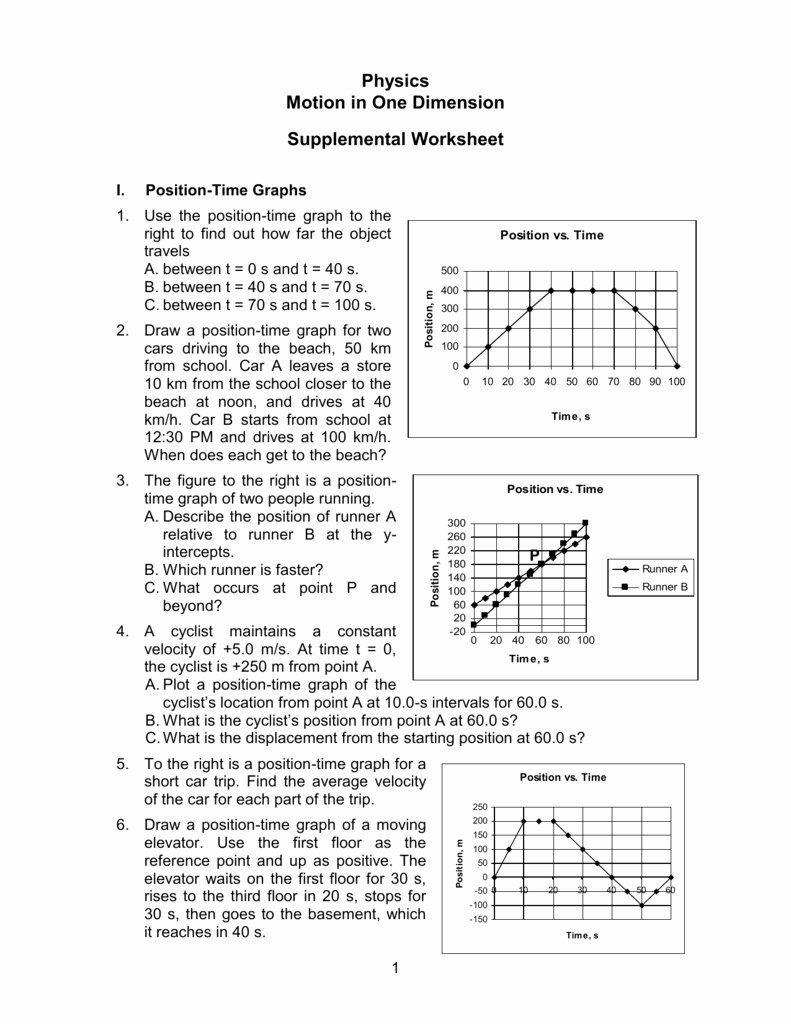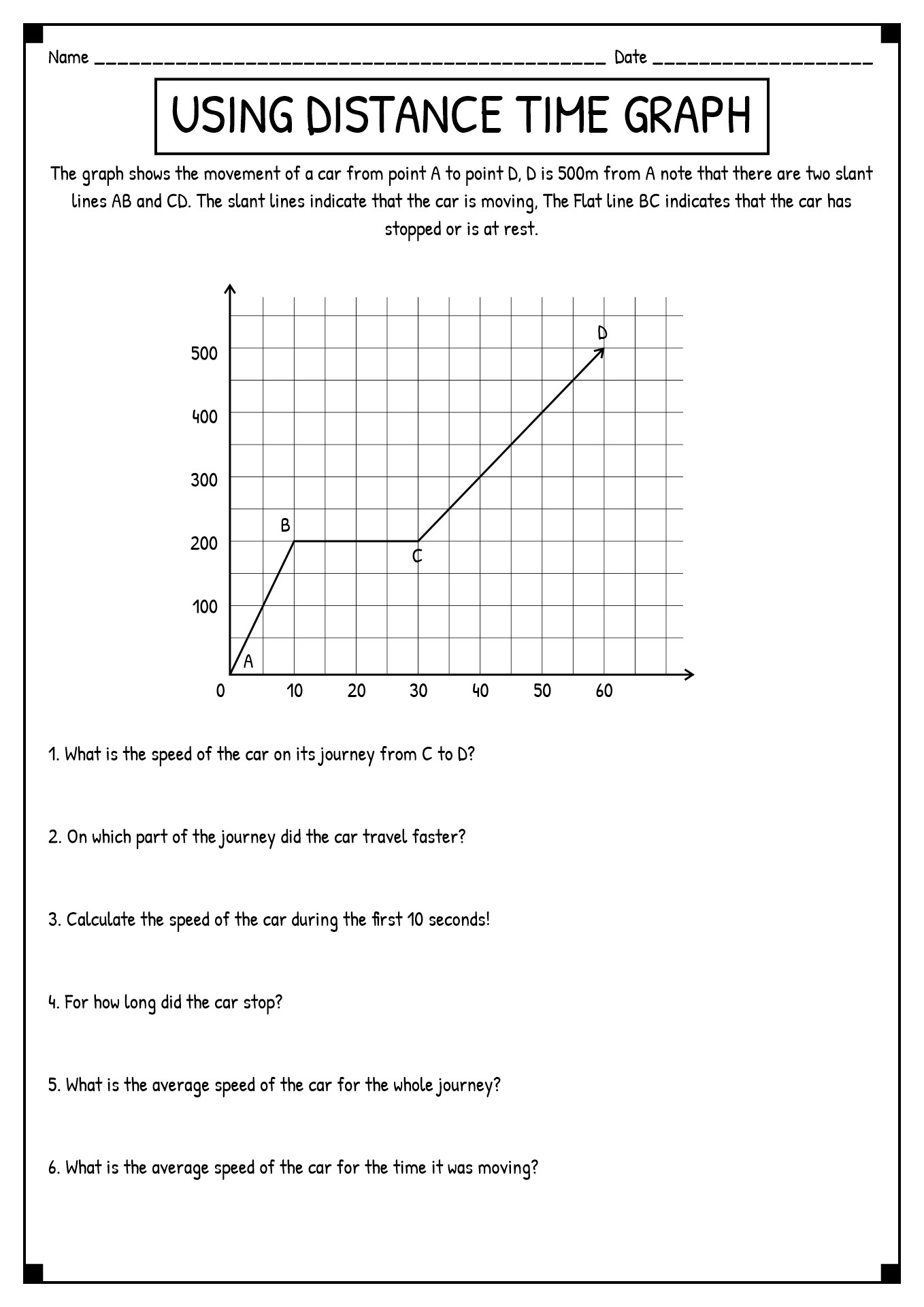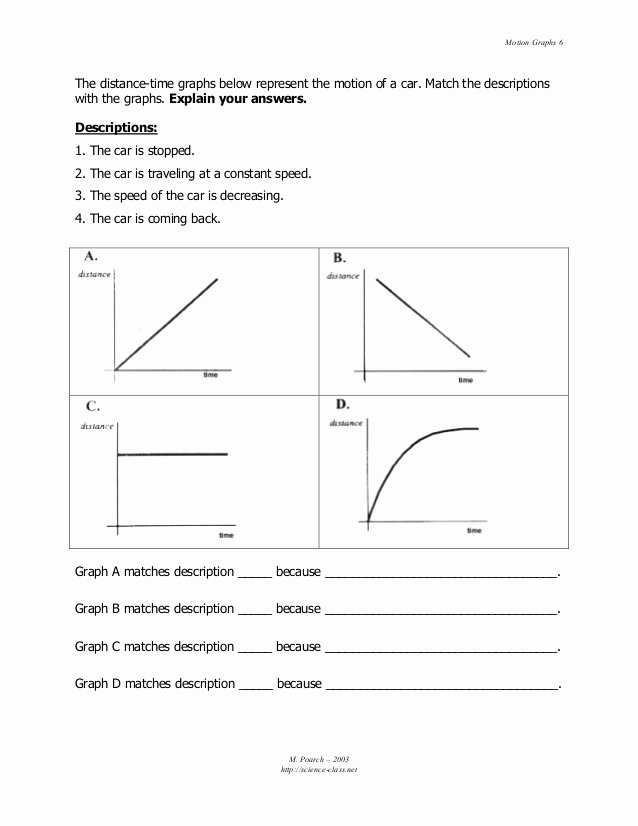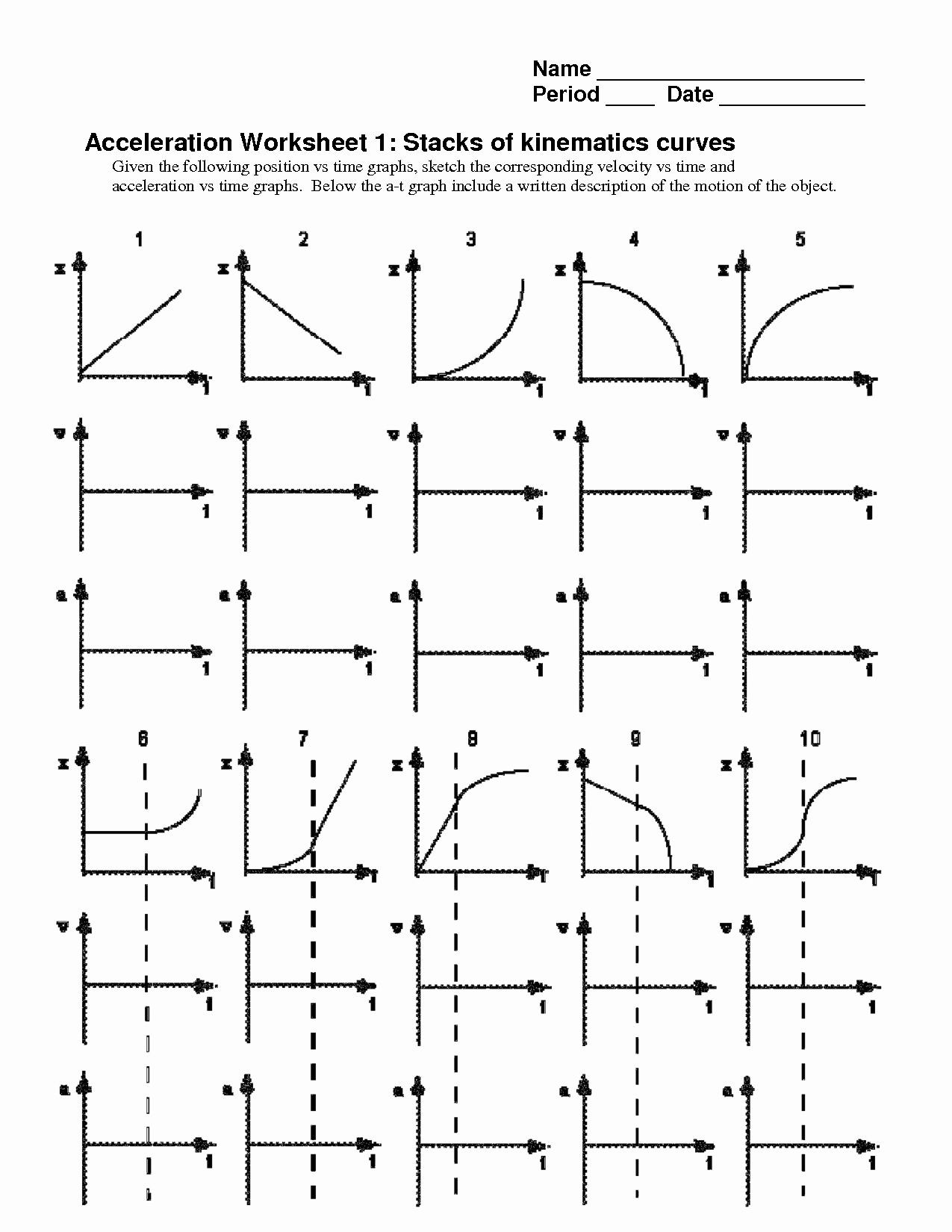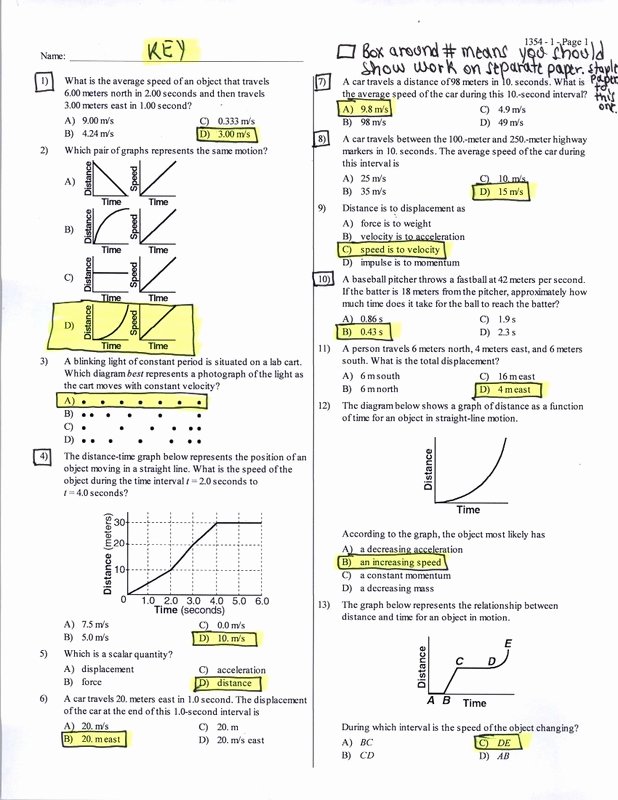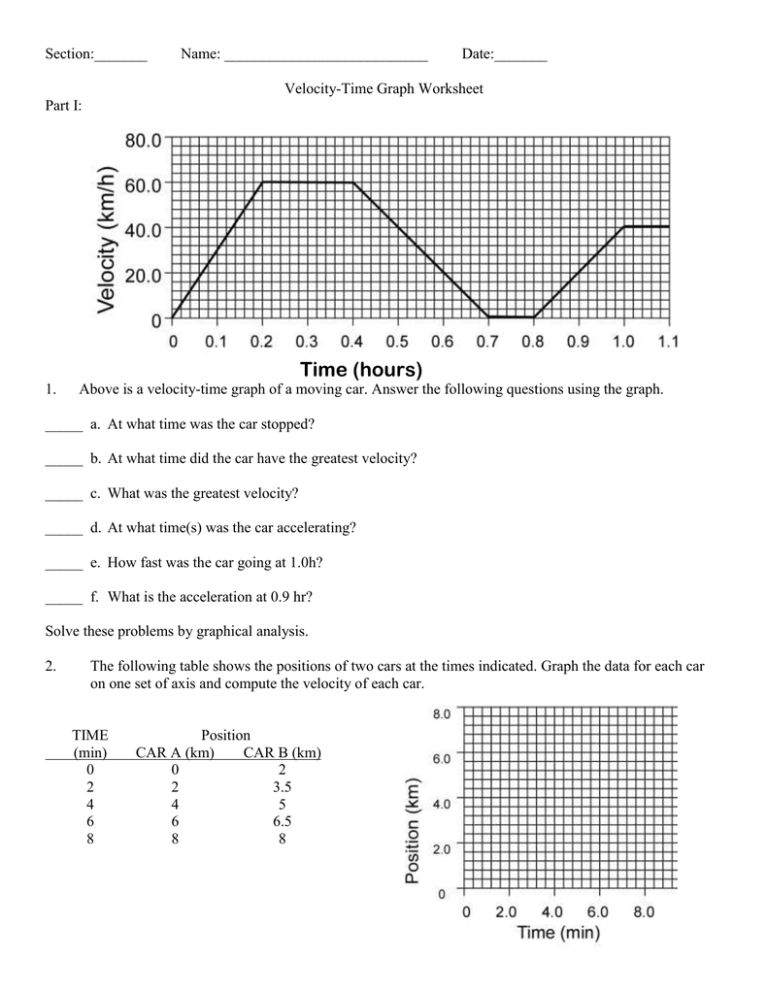Motion Graphs Physics Worksheet
Motion Graphs Physics Worksheet - For an added challenge also make a graph of his velocity as a function of time. An object goes from one point in space to another. The graph shown above is created by an object that starts at rest from the origin. What is the average acceleration of the moving object? Physics motion worksheet part i 1. Plot the corresponding graph of acceleration as a function of time. Interpreting motion graphs page 1 of 2 © 2008 by g. After it arrives at its destination (a) its displacement is the. What can we say about the motion of this object? Use these charts to plot his position as a function of time.
What can we say about the motion of this object? For an added challenge also make a graph of his velocity as a function of time. Plot the corresponding graph of acceleration as a function of time. Physics motion worksheet part i 1. The graph shown above is created by an object that starts at rest from the origin. An object’s motion is described by the following graph of position vs. Use these charts to plot his position as a function of time. Describe the motion in words given the following position vs. Interpreting motion graphs page 1 of 2 © 2008 by g. What is the average acceleration of the moving object?
After it arrives at its destination (a) its displacement is the. For an added challenge also make a graph of his velocity as a function of time. What can we say about the motion of this object? Use these charts to plot his position as a function of time. An object goes from one point in space to another. The graph shown above is created by an object that starts at rest from the origin. Plot the corresponding graph of acceleration as a function of time. Describe the motion in words given the following position vs. Interpreting motion graphs page 1 of 2 © 2008 by g. What is the average acceleration of the moving object?
Motion Graphs Physics Worksheet
Describe the motion in words given the following position vs. An object goes from one point in space to another. An object’s motion is described by the following graph of position vs. Physics motion worksheet part i 1. Plot the corresponding graph of acceleration as a function of time.
Motion Graphs And Kinematics Worksheet Motion Graphs Kinemat
An object goes from one point in space to another. After it arrives at its destination (a) its displacement is the. Time graph (for each segment, mention starting position, direction of motion,. Use these charts to plot his position as a function of time. Describe the motion in words given the following position vs.
Motion Graphs Physics Worksheet
An object’s motion is described by the following graph of position vs. What can we say about the motion of this object? For an added challenge also make a graph of his velocity as a function of time. What is the average acceleration of the moving object? Interpreting motion graphs page 1 of 2 © 2008 by g.
Physical Science Velocity Worksheet
After it arrives at its destination (a) its displacement is the. The graph shown above is created by an object that starts at rest from the origin. An object’s motion is described by the following graph of position vs. Plot the corresponding graph of acceleration as a function of time. What can we say about the motion of this object?
50 Motion Graphs Physics Worksheet
Use these charts to plot his position as a function of time. An object goes from one point in space to another. Describe the motion in words given the following position vs. Interpreting motion graphs page 1 of 2 © 2008 by g. Physics motion worksheet part i 1.
Motion Graphs Physics Worksheet
An object goes from one point in space to another. The graph shown above is created by an object that starts at rest from the origin. Time graph (for each segment, mention starting position, direction of motion,. What is the average acceleration of the moving object? An object’s motion is described by the following graph of position vs.
Motion Graph Analysis Worksheet Worksheet for Education
After it arrives at its destination (a) its displacement is the. Use these charts to plot his position as a function of time. Describe the motion in words given the following position vs. Interpreting motion graphs page 1 of 2 © 2008 by g. An object goes from one point in space to another.
50 Motion Graphs Physics Worksheet
For an added challenge also make a graph of his velocity as a function of time. Use these charts to plot his position as a function of time. Describe the motion in words given the following position vs. What can we say about the motion of this object? The graph shown above is created by an object that starts at.
Section_______ Name ___________________________ VelocityTime
What is the average acceleration of the moving object? Time graph (for each segment, mention starting position, direction of motion,. What can we say about the motion of this object? An object’s motion is described by the following graph of position vs. Interpreting motion graphs page 1 of 2 © 2008 by g.
Motion Graphs Physics Worksheet
Plot the corresponding graph of acceleration as a function of time. An object goes from one point in space to another. For an added challenge also make a graph of his velocity as a function of time. An object’s motion is described by the following graph of position vs. The graph shown above is created by an object that starts.
What Is The Average Acceleration Of The Moving Object?
For an added challenge also make a graph of his velocity as a function of time. Time graph (for each segment, mention starting position, direction of motion,. Describe the motion in words given the following position vs. Plot the corresponding graph of acceleration as a function of time.
After It Arrives At Its Destination (A) Its Displacement Is The.
An object goes from one point in space to another. Physics motion worksheet part i 1. An object’s motion is described by the following graph of position vs. Use these charts to plot his position as a function of time.
The Graph Shown Above Is Created By An Object That Starts At Rest From The Origin.
Interpreting motion graphs page 1 of 2 © 2008 by g. What can we say about the motion of this object?
